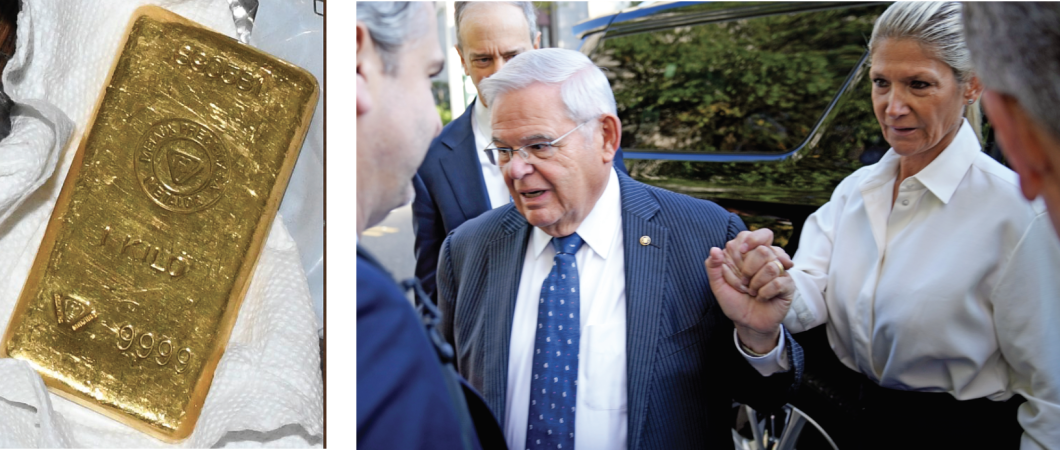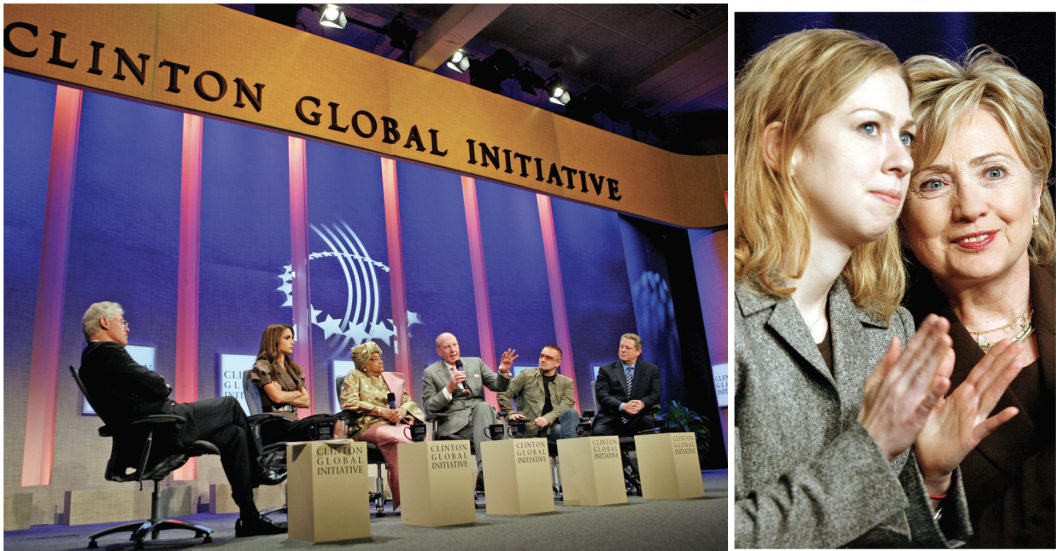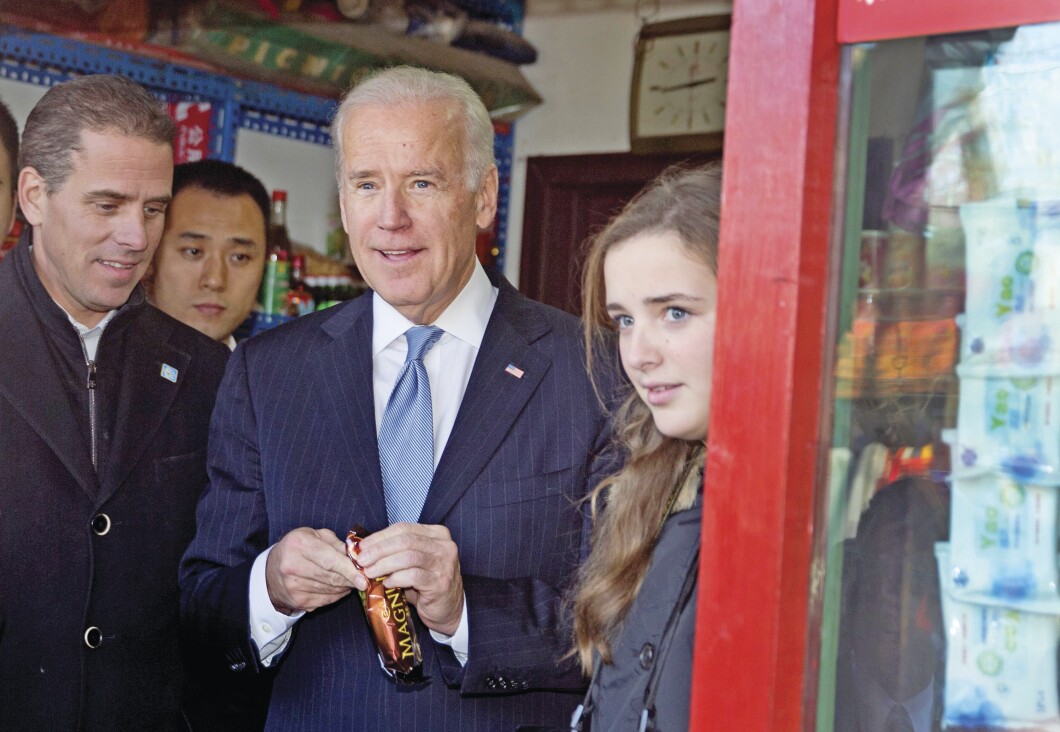
Why were businesses from China, Ukraine, Romania, Kazakhstan, and Russia so generous to Hunter Biden and the web of companies he and his Uncle Jim Biden were associated with during a period that coincided with Joe Biden’s term as vice president? That’s what the House Oversight Committee is asking. The answer will doubtless be part of any hearings that House Republicans might hold for the impeachment of the president.
The question itself gestures at an answer, but many Washington insiders are puzzled. After all, in the words of Chuck Todd, NBC News political director and the recently departed Meet the Press host, “It is not a crime to make money off of your last name.”
IF RFK JR. GOES INDEPENDENT, DOES THAT HELP BIDEN OR TRUMP?
To those who live outside the Beltway, the notion of trading on one’s family connections has the not-so-faint air of corruption. But to the initiated, it’s just the way politics works. Influence peddling is the grease that enables the machinery of the federal bureaucracy and Congress to operate. In the metropolitan Washington area, much of the population works in the capital’s one major industry: government. That translates into widespread family connections between those who hold office and those who report about them or are lobbyists, political activists, and/or campaign consultants. That, along with their own left-leaning political bias, accounts for why much of the corporate press regard any adversarial coverage of the Biden family business as Republican-planted bomb-throwing.
But they’re wrong about that, and not just because the capital’s political culture is far too comfortable with the sway that lobbyists have over the writing of laws and the way unelected bureaucrats enact regulations that have the power of law. Routine lobbying may smell bad to average citizens, but there is a difference between run-of-the-mill Washington lobbying and the sort of activity that the Bidens were involved in.
‘Honest graft’ vs. crime
The two types of “cashing in” are what the political machines of the 19th and early 20th centuries like New York’s Tammany Hall would have called “honest graft” and what amounts to actual crimes. When the quid pro quo of transactions that are thinly disguised bribes is out in the open as well as related to the normal business of government, that might not be considered kosher by good government types and reformers and could often be illegal. But to everyone else, it was just business as usual, with no victim.
Applied to the current context, when the pharmaceutical industry, Big Oil and other energy lobbies, or any other major business seeks to influence government policy, there is a similar understanding. In these efforts, for the most part, everyone knows what they want and what they are willing to give in order to get it. And if the lobbyists are fronted by a famous name or a former politician with sway on Capitol Hill, that too is understood as part of a process that is not conventionally transparent but still intuitively understood.
The same can be said about the way political causes and their lobbyists operate in Washington or state capitals, such as when the pro-abortion lobby NARAL, now known as Reproductive Freedom for All, and the National Rifle Association weigh in on policy. They want legislation and policy that is in sync with their ideologies and can offer political support and, in one form or another, the campaign contributions that are the lifeblood of any politician’s future.
Foreign bribery
But when foreign governments and the companies they control throw money at those who they believe are in a position to help them, the process is neither transparent nor is it easily understood what is being offered in exchange for their generosity. And it cannot be waved away, even cynically, as “constituent services.”

Foreign companies have lobbied in America throughout our history.
One of the most prominent examples concerned the European banks and financial institutions that lent most of the money that paid for many of the railroads that companies chartered in the mid-19th century. These operations inevitably involved greasing the hands of politicians who made the decisions about the rights and the routes that were chosen. If a lot of that was spent in vain, since many of those companies and the states that backed them failed and left the banks high and dry, that was part of the cost of doing business.
In the 20th century, as American financial and military might make it a global superpower, nations seeking to influence Washington did their best to influence those involved in the distribution of aid or similar transactions. The recent case in which Egyptian entities are accused of bribing Senate Foreign Relations Committee Chairman Bob Menendez (D-NJ), who has since vacated his chairmanship, with gold bars and cash is appalling if true. But as with those 19 century state legislators who were the recipients of “gifts” from European railroad financiers, there isn’t much of a mystery about what either party to the alleged transaction sought.
The Clinton model
But in the last 20 years, we’ve seen the growth of a very different kind of influence operation involving Americans and wealthy foreigners, the model for which was created by Bill and Hillary Clinton.

The Clinton Foundation was founded in 2001 by the former president and first lady as a philanthropic endeavor. Over the course of the next 16 years, it raised a staggering total of $2 billion from wealthy donors, including foreign entities. Though its good works were widely touted by friendly media as making a difference in the fight against global poverty, the true purpose of the foundation was easily discerned.
By the normal standards by which charities are judged, the Clintons’ effort could be considered something of a scam. Its tax returns showed that less than 10% of the funds it raised went toward actual philanthropy. Instead, most of the money went toward funding the Clinton Presidential Library and the Clinton Global Initiative.
The library was, like all the other similar institutions created in the last generation to house the papers and memorabilia of recent presidents, a monument to the vanity of the Clintons, though not, it must be admitted, as grand as those of his successors George W. Bush and Barack Obama.
The Clinton Global Initiative was also not a charity. Instead, it was, as the New York Times once described it, a “glitzy annual gathering of chief executives, heads of state and celebrities.” Most of the money raised by the foundation went toward staging the event and for the travel and expenses incurred by Bill, Hillary, and their daughter Chelsea.
The Clintons posed as philanthropists. But they didn’t feed the hungry or clothe the poor. During the foundation’s heyday, they were merely conveners of famous and smart people who supposedly brainstormed about how to do those things. They called this “life-changing” work, and it’s possible that some of their efforts on which they spent a small percentage of the money they raised, such as supplying anti-malarial drugs to African nations, did some good.
But the only ones whose lives we can be certain were “changed” by the foundation were the Clintons, their cronies, and their staff. Most of the $2 billion they raised was spent on salaries, travel, offices, and other perks. At its peak of popularity, the Clinton Foundation was the ultimate Lifestyles of the Rich and Famous reality show cloaked in a veneer of good intentions and charitable rhetoric. But not much of a charity.
Why, then, did so many wealthy people give it so much money? Gaining access to famous people is worth a lot to those interested in social climbing or being seen in fashionable surroundings. But for the numerous heads of state and foreign companies that donated to it, it was clearly an investment.
Had the Clintons merely retired to private life after leaving the White House, it’s doubtful that their foundation would have raised a fraction of the money it accumulated. But given that Hillary Clinton had won a New York Senate seat in 2000 and had her sights set on a presidential run from then on, it wasn’t difficult to understand why so many people thought funding this vanity project was worth the money they spent on it.
In this way, the foundation was more than just a legal slush fund that both eased their post-presidential lives and kept them in the public eye. The money they were given was a not-so-subtle investment in future political influence.
That was made abundantly clear by the surge in donations that occurred in the lead-up to Hillary Clinton’s unsuccessful campaign for the Democratic presidential nomination in 2008 and then again in 2015 and 2016 as she won her party’s nod and then headed into a general election showdown with Donald Trump that most thought would be a coronation of the nation’s first female president.
Any doubt about the reason for giving to the foundation was made even more obvious by the steep decline in donations to it once Clinton was defeated by Trump.
The Biden family business
That is the context in which the dazzling success of Hunter Biden in the years following his father’s election as vice president needs to be understood.

During much of Joe Biden’s 36 years in the Senate, his brothers James and Francis Biden were “entrepreneurs” who often sought to profit from their association with their brother. As a Wall Street Journal report noted, they traded on his name by taking calls from the senator or vice president during business meetings, a clear signal that they could give access to a person in power. This was a pattern that would be repeated by Hunter Biden.
Hunter Biden’s work life was similarly intertwined with his father’s influence from the start, beginning with being hired fresh out of law school by MBNA, a credit card company that benefited from legislation drafted by Joe Biden that made it more difficult for consumers to get bankruptcy protection. Within two years, Hunter Biden had risen to the title of vice president there before leaving for a brief stint in the Commerce Department and then forming his own lobbying firm.
But it would not be until his father became vice president that Hunter Biden began acquiring international connections. As the summary and timeline published by the House Oversight Committee made clear, the Biden family business went global during this period. That was especially true in his second term when it was possible that he might challenge Hillary Clinton for the Democratic presidential nomination in 2016 and accelerated in the years after that as a Biden 2020 run became likely.
The decision of the board of the Burisma energy company in Ukraine to put Hunter Biden on its board of directors from 2014 to 2019, a post that earned him millions of dollars, is probably the best known of his foreign connections.
But of particular interest is the fact that from 2013 to 2020, Hunter Biden served as a member of the board of the Shanghai-based private equity fund BHR Partners, of which he acquired a 30% stake at a discount. The firm was controlled by people and entities that were in thrall to the Chinese Communist Party.
That the Chinese would tap Hunter Biden as a financial wizard, and at a point in his life when he was already suffering from addiction problems, is curious. But it was rendered even more interesting by the fact that out of all the many investment firms available to them, they chose BHR to assist them in a billion-dollar transaction in which they managed to seize control of the largest cobalt reserves in the world in the Democratic Republic of the Congo, which were owned by an American company. BHR’s role in the transaction, involving a buyout of the U.S. company’s Canadian partner, was crucial. Yet it was buried deep in the middle of a lengthy feature in the New York Times in November 2021 about the Chinese acquisition of a stranglehold on the world’s supply of cobalt, a key resource needed for the manufacture of batteries for electric cars. Though the New York Times’s sources claimed that Hunter Biden made nothing from this deal, given the enormous sums involved, it’s hard to believe that one of BHR’s principals would be left out in that manner.
In this case, as in many other of the transactions that reportedly brought Hunter Biden and his various firms up to $21 million (that we know about), there was no apparent direct benefit that such foreign entities appeared to have gotten by singling out the president’s son in this manner.
To date, none of the money has been traced directly to the president’s accounts, though in one instance, Chinese banks wired $250,000 to Hunter Biden while listing his father’s Delaware home as the address of the recipient.
Much like the money donated to the Clintons, the flow of money to Hunter Biden and his uncles, which was then distributed to family members via a complicated set of corporations and bank accounts that resemble a classic money-laundering operation, seems intended to buy the influence of “the big guy” whose political power enabled his relations to trade off their names.
While Biden apologists keep insisting there’s nothing illegal about any of this, their rationalizations fail to answer the obvious questions the money given to Hunter Biden raises about his father’s actions or influence.
Perhaps Joe Biden’s well-known boast about leveraging U.S. aid to Ukraine in order to force the firing of a prosecutor that was targeting Burisma was above board. But for what purpose, other than to gain the support of the man tasked by Obama to run Ukraine policy, did Burisma intend by putting a drug addict with no energy industry experience into a lucrative position on its board?
The same questions can be asked about the millions that came to Hunter Biden from Chinese firms that are controlled by that country’s ruling communist tyrants.
And that is the problem with powerful American political families playing the influence-peddling game abroad. It’s bad enough when domestic lobbyists are able to throw around the kind of money in Washington that makes and breaks political careers. But there is no secret about what is going on there or what the implications of these transactions will be.
When foreign companies and governments play the same game, the point of the operation is far murkier and calls into question not just legislation or administrative regulations but American foreign policy and the fate of millions who are influenced by such decisions.
CLICK HERE TO READ MORE FROM THE WASHINGTON EXAMINER
As shady as these transactions seem, it is not just the lack of ethics on the part of those involved that ought to trouble people but also whether or not their leaders and their dependents are compromised by their foreign clients and donors.
The mere hint, based on what proved to be fallacious claims, that Trump was colluding with Russia in the 2016 campaign was enough to create a faux scandal that transfixed American politics for three years. The evidence that the Bidens were peddling their influence abroad deserves at least as much attention. The voters deserve answers to the question of what exactly those who funneled millions to the Bidens thought they were purchasing. Unless this affair is thoroughly investigated and accountability for any infractions of the law or compromising of government policy is demanded, the precedents set by the Clintons and now the Bidens will create a new standard for behavior that will destroy what’s left of the credibility of the Washington political class.
Jonathan S. Tobin is editor-in-chief of JNS.org and a columnist for Newsweek. Follow him: @jonathans_tobin.





